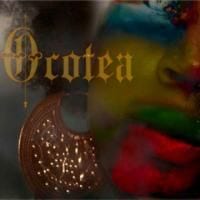
At this point, if you aren’t up on something involving Georgia Anne Muldrow, you’re woefully ignorant of an ever-expanding dynasty. While she made her name early on as the female Madlib, her sound quickly took a turn for the especially funky, blending now generation 808s and stoned synths with the forgotten bop of George Clinton and James Brown. Whether it be the explicit inspiration she provided to Erykah Badu’s first New Amerykah installment, her multiple collaborative efforts with partner Dudley Perkins, or her own solo work, Muldrow has consistently been one of the brightest lights in her field for two or three years.
However, due to her aggressive release schedule and reliance on original compositions rather than samples, where Muldrow most comfortably avoids the Madlib comparison is consistency. Both a gift and a curse, her sound has become somewhat homogenous to the point that previous skeptics have no reason to re-examine her, and fans face the eternal struggle of continued belief or fading faith. Ocotea, then, is Muldrow’s answer to that conflict.
Her creative base existing in the hip-hop universe is for the most part a result of the times we’re in. Her ideology as an artist is much more in line with the vibes of jazz and funk, both thanks to her genetics and her approach to music. Ocotea puts both of these things into perspective, opening with the beautiful standard-sounding “The Black Mother” before quickly revealing itself to be something entirely different. For some, the sudden free-jazz expressions of “Psalm of Rubble” and “Thread’s First Stitches” are going to be off-putting, particularly the cavernous landscape of the latter. But as a progression of Georgia’s sound, both of these songs work exceptionally as they translate her love of free form vocal melodies to drum kits and ominous patches of synths.
What makes those sorts of deviations from standard jazz feel awkward is that they are, with the exception of “Thread’s First Stiches”, relegated to tracks hovering around 2:30 in length. These tracks take up the bulk of the LP, leading to a scarce 29-minute runtime, by far the briefest Muldrow full-length to date. Taken in the bigger picture, these somewhat meandering projects coalesce into a confident whole. The psychedelia of the second and third tracks is necessary to introduce the anchored, more funk-oriented sounds of “Language of the Flame”. One begins to notice these tracks often end in a way that predicts the next, and great care for the sequence of events feels obvious. When the album finally returns to normal, Chicago-style acid jazz territory with “Blessed Matches”, it feels completely natural despite those sounds being absent from the disc from the end of track one.
Ocotea is perhaps more a collection of great ideas than an album, but it is striking how many great ideas Muldrow has outside her traditional realm of hip-hop. A few tracks recall Squaresoft RPG soundtracks in the way they playfully bounce around sets of synths and chime-based percussion, especially “Stevelander” (cue up some Yasunori Mitsuda), and nothing on the LP comes across as gratuitous. Like Madlib, staunch jazz critics may easily argue for Muldrow’s lack of innovation or technique, but to these ears she is nearly as accomplished at the art of her ancestors as at her own generation’s sounds.
If you were expecting a somewhat ambitious free-jazz album to be the death of Muldrow’s momentum in underground production circles, you thought wrong. Ocotea may not throw any surprises jazz-heads’ way, but it certainly certifies Muldrow as an unrivaled musician in her field. More importantly, it renders her without a doubt as a risk taker. That’s a quality many hip-hoppers would do well to revive within themselves as well.

![Call for Papers: All Things Reconsidered [MUSIC] May-August 2024](https://www.popmatters.com/wp-content/uploads/2024/04/all-things-reconsidered-call-music-may-2024-720x380.jpg)



